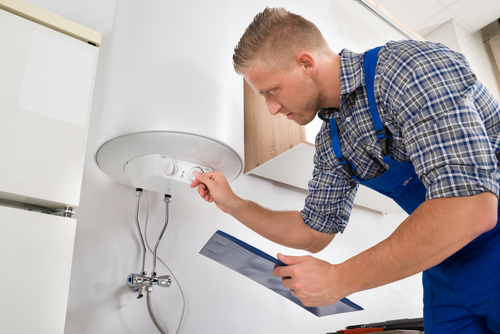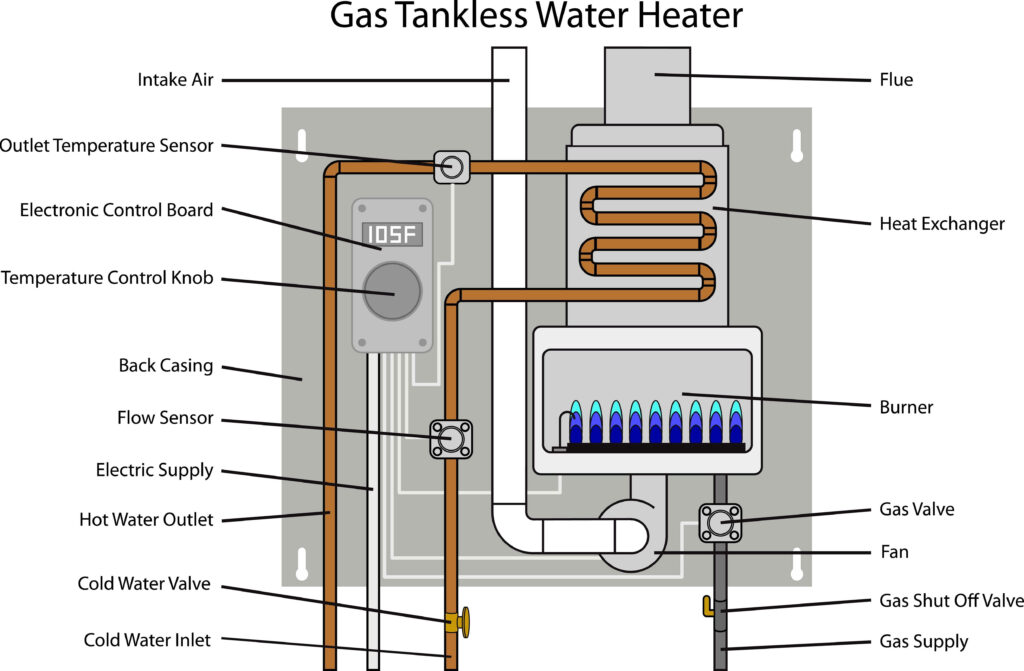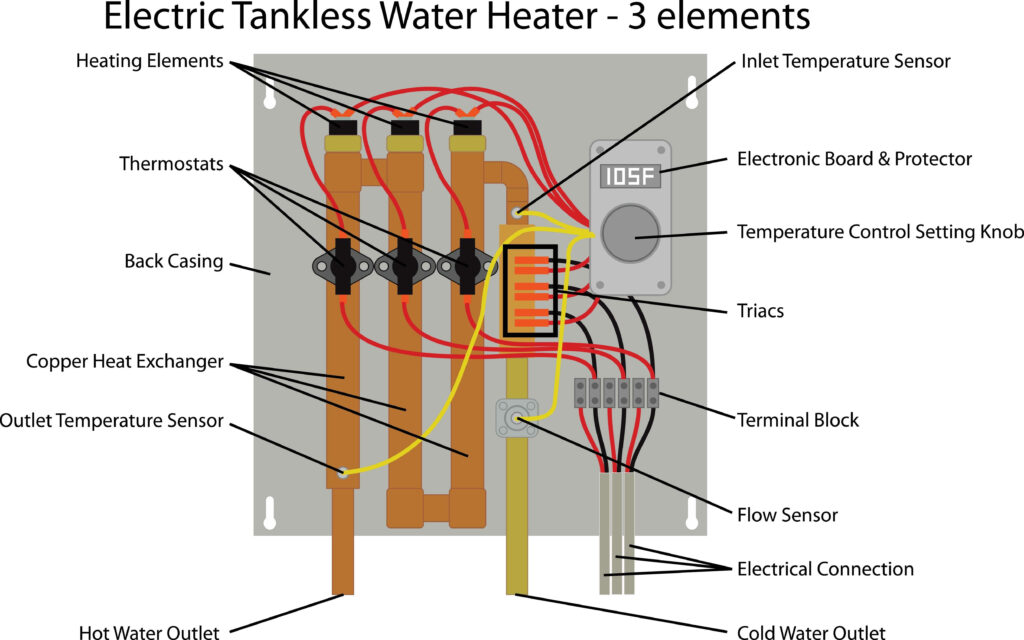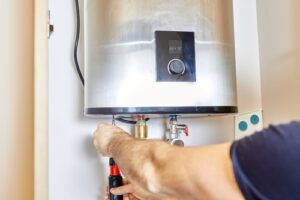May 7, 2025
Installing a Tankless Hot Water Heater

Tankless hot water heaters are all the rage in home improvement thanks to their energy-saving design and long-lasting life cycle. Where traditional hot water heaters store 40-50 gallons of hot water until you need it, tankless hot water heaters create hot water on demand. That means they’re more efficient and use less energy, with the added benefit of lasting up to 20 years.
There are pros and cons of tankless water heater installation, and choosing the best tankless water heater for your home is crucial. To help you make an informed decision, we’ll walk you through the tankless water heater basics. You’ll want to consider the fuel type, size, energy efficiency, and cost of your appliance.
And remember—no matter what type of water heater you install, ALWAYS have a licensed professional plumber do the work. Your health and safety depend on the job being done properly and up to code. Schedule a hot water heater inspection regularly to maintain the safety, efficiency, and lifespan of your water heater.
Electric Tankless Water Heater vs Gas Tankless Water Heater
A tankless water heater works by sending cold water through a series of coils that wrap around a heat exchanger. This heat exchanger heats the water using either a gas burner or an electric heating element. It may seem like a no-brainer to keep whichever heating source your current water heater uses, but each has distinct advantages and disadvantages. Let’s compare:
Gas Tankless Water Heaters

Gas water heaters are 80-85% efficient. They come in both propane and natural gas models. They can produce more hot water than an electric heater.
Gas instant water heaters work well in homes with multiple family members where you might want hot water in several locations. If you want to shower while the dishwasher is running and someone is doing laundry, a gas tankless water heater is likely the better option.
Gas models require a larger gas line and more substantial ventilation. Have a professional like the experts at Applewood determine what upgrades your home might need. Another important consideration is that gas instant water heaters require more maintenance, and should be serviced annually to avoid sediment buildup.
Electric Tankless Water Heaters

Electric tankless heaters are 98-99% efficient and require minimal maintenance. They’re typically smaller than gas units—which gives you more flexibility with where you can install them.
One of the common problems with electric tankless water heaters is that they don’t produce as many gallons per minute of hot water as gas units do. Larger households may need to strategize when they use hot water or install multiple electric units. Because of their cost, small size, and versatility, some homes will install dedicated electric water heaters in multiple locations such as a hot tub, dishwasher, or guest bathroom.
Tankless Water Heater Cost
A gas instant water heater will cost you more upfront—between $300 on the low end for a propane tankless water heater and over $2,000 for a natural gas water heater. But you may save on energy costs in the long run, as gas tends to be cheaper than electricity. However, gas prices can fluctuate more. You’ll also need to factor in the installation costs if your home requires upgrades, plus annual maintenance services.
Electric tankless water heaters may cost less than gas heaters, ranging from around $100 to $800. These instant water heaters use a fair amount of electricity, and if you have an older home, you might have to invest in an electric panel upgrade before you can install your water heater. And depending on the size and water needs of your home, you may need to purchase multiple electric water heaters.
No matter which model you choose, your tankless water heater installation cost will depend on the cost of the unit, necessary home upgrades, and size of the unit. Contact the experts at Applewood to get your installation estimate today!
Is My Home Ready To Install a Tankless Water Heater?
Depending on your water needs and the type of heater you decide to install, your home may already be equipped to handle a tankless model. Here are a few considerations to keep in mind.
If you’re installing a gas model, you’ll probably need an adaptation to your gas line. Most gas tankless water heaters require a ¾ inch gas line to provide enough fuel for instantaneous heating. Unfortunately, most homes are equipped with ½ inch gas lines and will need to be upgraded. Liscensed plumbers, like the experts at Applewood, can perform this work as part of your tankless water heater installation.
Similarly, electric tankless water heaters require a fair amount of electricity to heat water rapidly. While they operate on a standard 120V system like most electrical appliances, they often need a dedicated 30-amp circuit. You may need to upgrade your electrical panel to accommodate the new demand so you’re not tripping circuits when you shower. A licensed electrician can perform this work during your installation.

Is Tankless Water Heater Installation Right for Me?
A tankless water heater install could reduce your utility bills and save you money while giving you a constant stream of hot water.
If your current water heater is older than 10 years, contact an Applewood technician to see if a tankless replacement is right for your home. We can help you choose the best tankless water heater for your water consumption needs and advise you on what accommodations are needed to install it.


